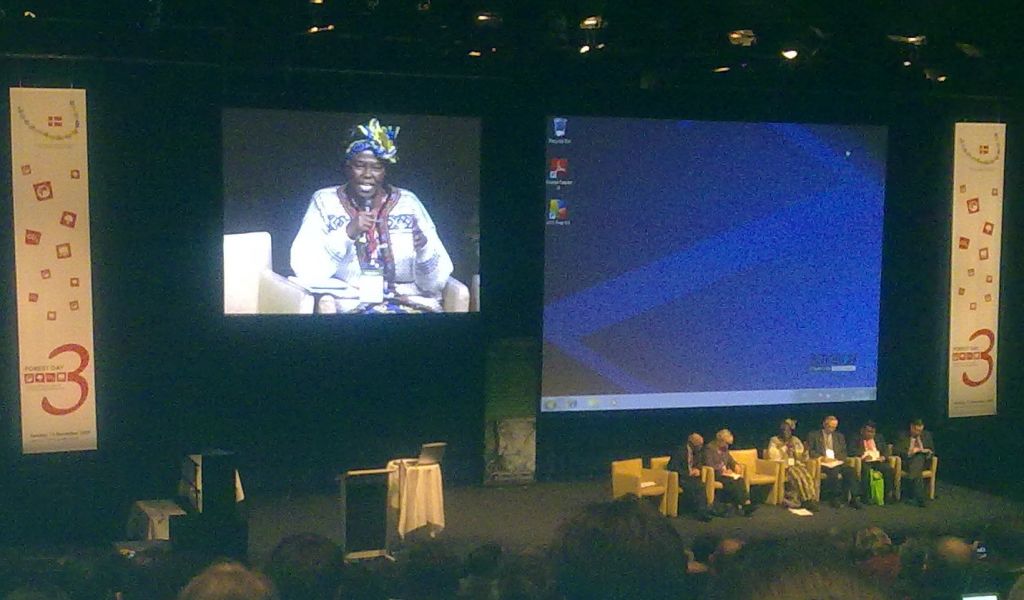It’s Official: Local People Hold the key

The growing prominence of REDD in the negotiations has made CIFOR’s annual Forest Day an increasingly important draw for negotiators and assorted dignitaries. On Sunday, Forest Day 3 glorified in the presence of four Nobel prize winners, no less, and a recorded address from Bill Clinton.
The opening plenary addresses were very promising. I was delighted, in particular, with Gro Harlem Brundtland’s analysis. Some of her comments were very familiar:
“Unlocking the potential of forests to climate change mitigation is a major opportunity for leadership at COP15.”
“Involving local people is a moral and formal obligation, and the ONLY WAY TO MAKE REDD+ WORK.”
Perhaps she’s been reading our materials.
Less surprising, but equally satisfying, was Elinor Ostrom’s testimony. I would specifically like to draw attention to her language on the issue of trust. The promise of local peoples’ contribution to monitoring forest resources in the long term, and thus to the generation of information required for REDD to be a credible mitigation strategy, requires trust between them, their representatives, and their governments over a long time horizon. And this trust must work both ways.
Some of the later sessions were less encouraging. In the sub-plenary session on ‘Degradation’, Sandra Brown of Winrock International intimated that remote sensing technology would, at the current rate of progress, soon provide all the information we need for credible monitoring and verification of a REDD mechanism. However, while such advances may soon lead to accurate monitoring of carbon stock changes, they are blind to the management interventions that drive them, which only first-hand data can provide.

